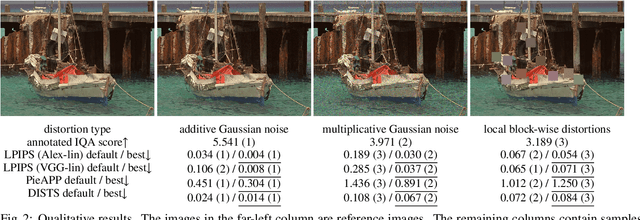Evaluating the Stability of Deep Image Quality Assessment With Respect to Image Scaling
Paper and Code
Jul 20, 2022



Image quality assessment (IQA) is a fundamental metric for image processing tasks (e.g., compression). With full-reference IQAs, traditional IQAs, such as PSNR and SSIM, have been used. Recently, IQAs based on deep neural networks (deep IQAs), such as LPIPS and DISTS, have also been used. It is known that image scaling is inconsistent among deep IQAs, as some perform down-scaling as pre-processing, whereas others instead use the original image size. In this paper, we show that the image scale is an influential factor that affects deep IQA performance. We comprehensively evaluate four deep IQAs on the same five datasets, and the experimental results show that image scale significantly influences IQA performance. We found that the most appropriate image scale is often neither the default nor the original size, and the choice differs depending on the methods and datasets used. We visualized the stability and found that PieAPP is the most stable among the four deep IQAs.
 Add to Chrome
Add to Chrome Add to Firefox
Add to Firefox Add to Edge
Add to Edge